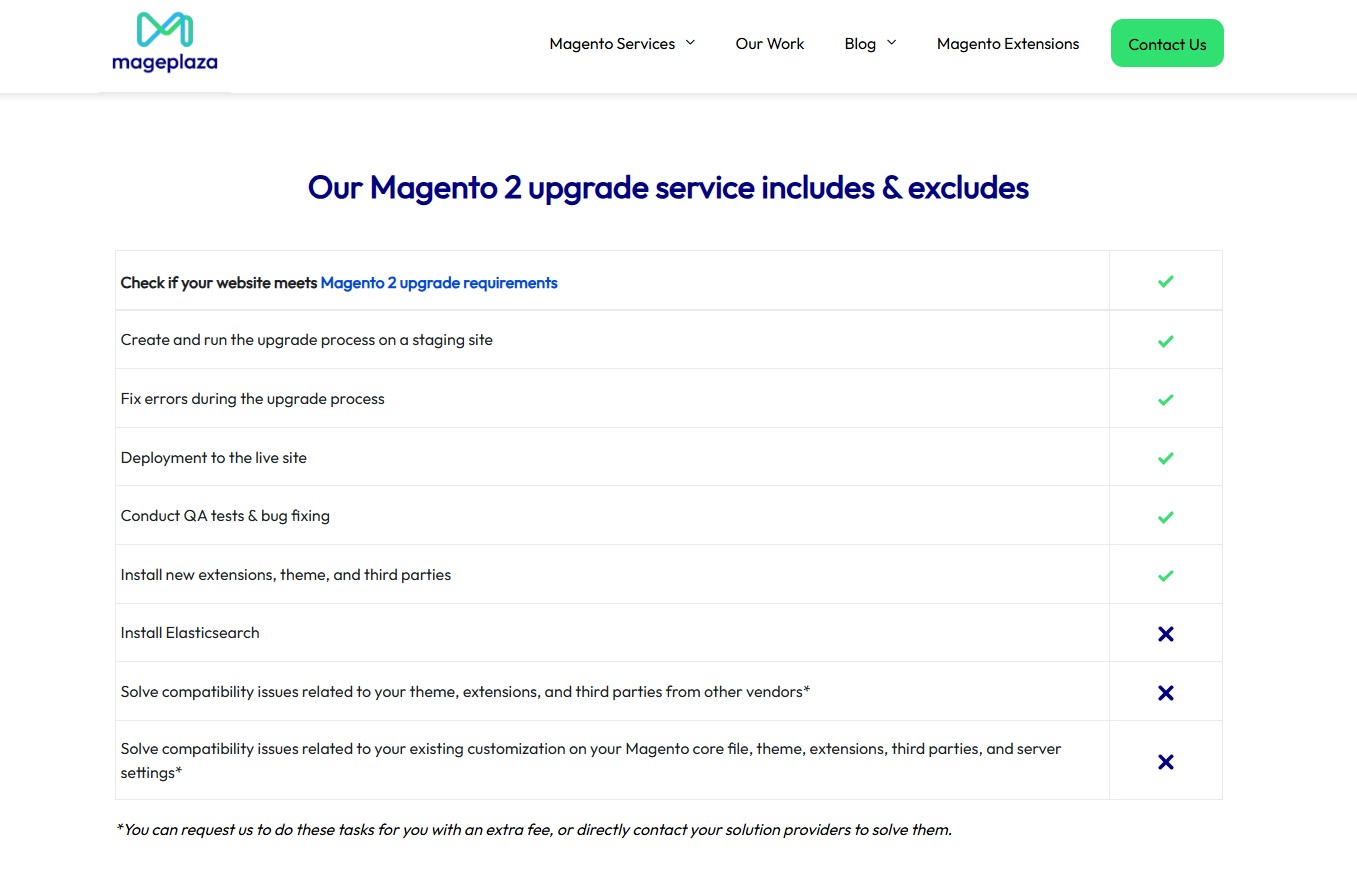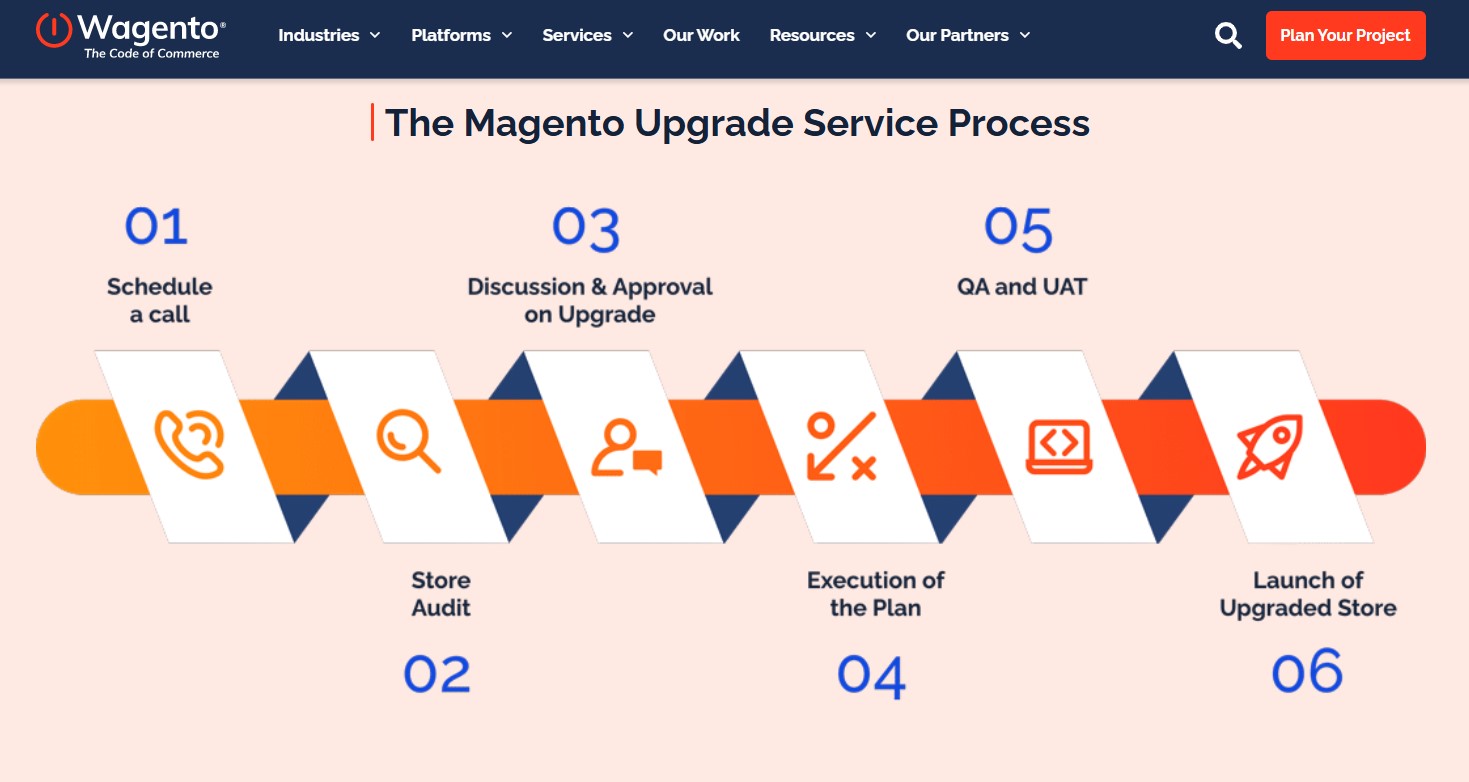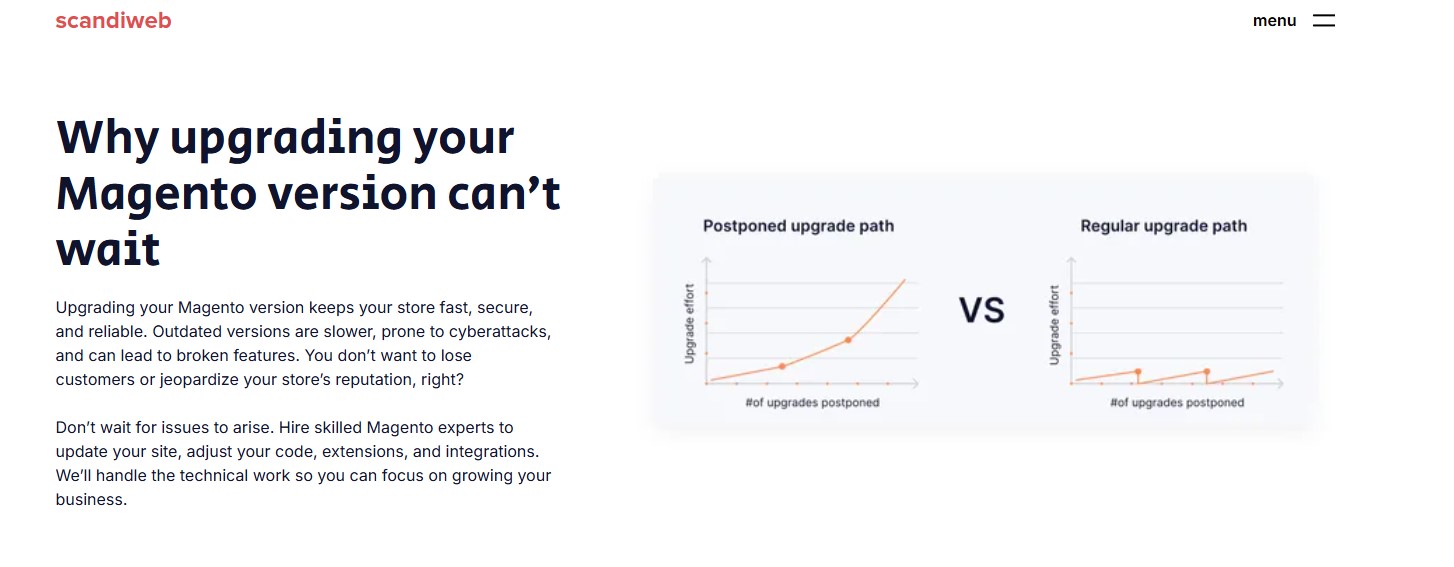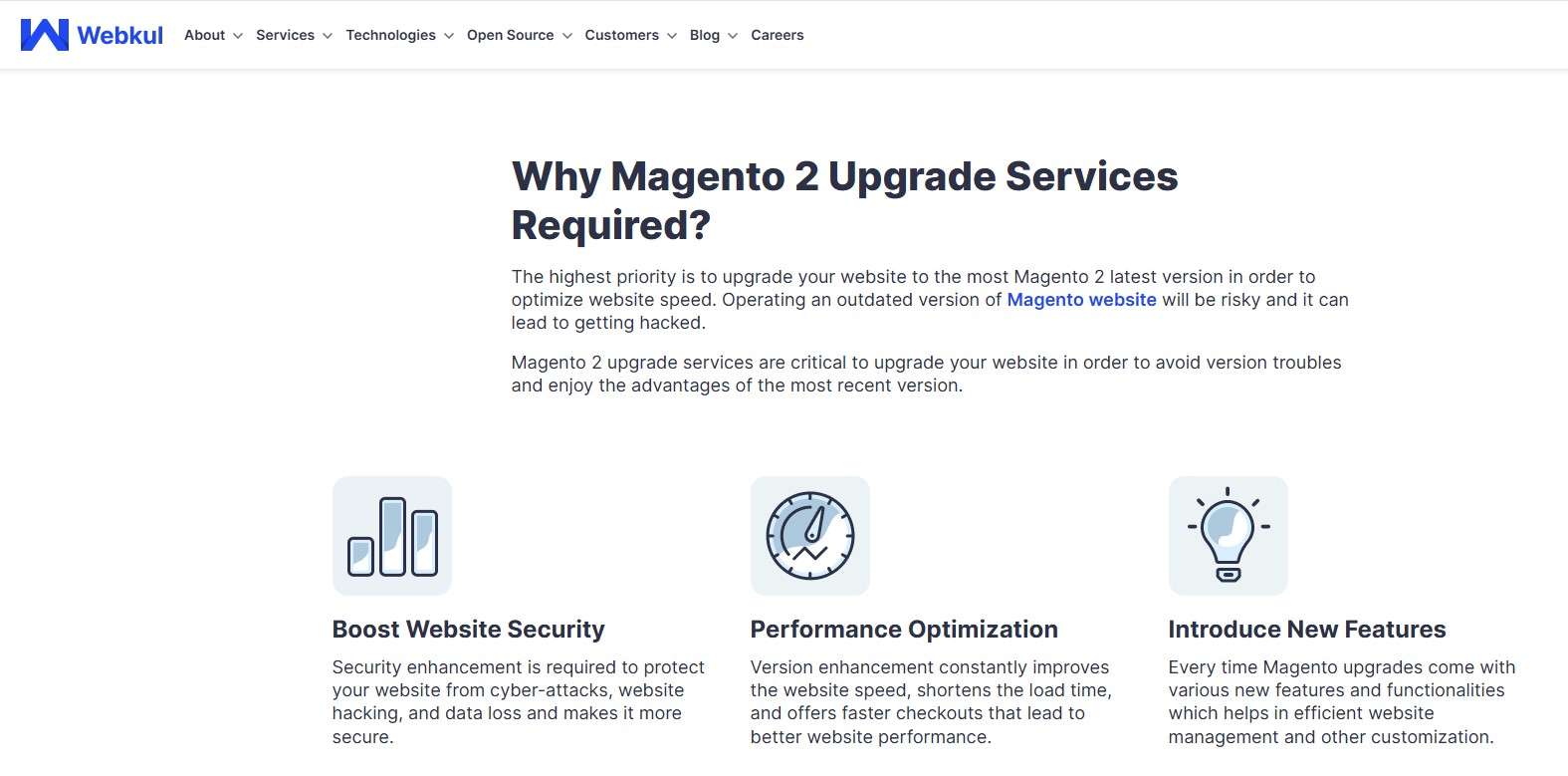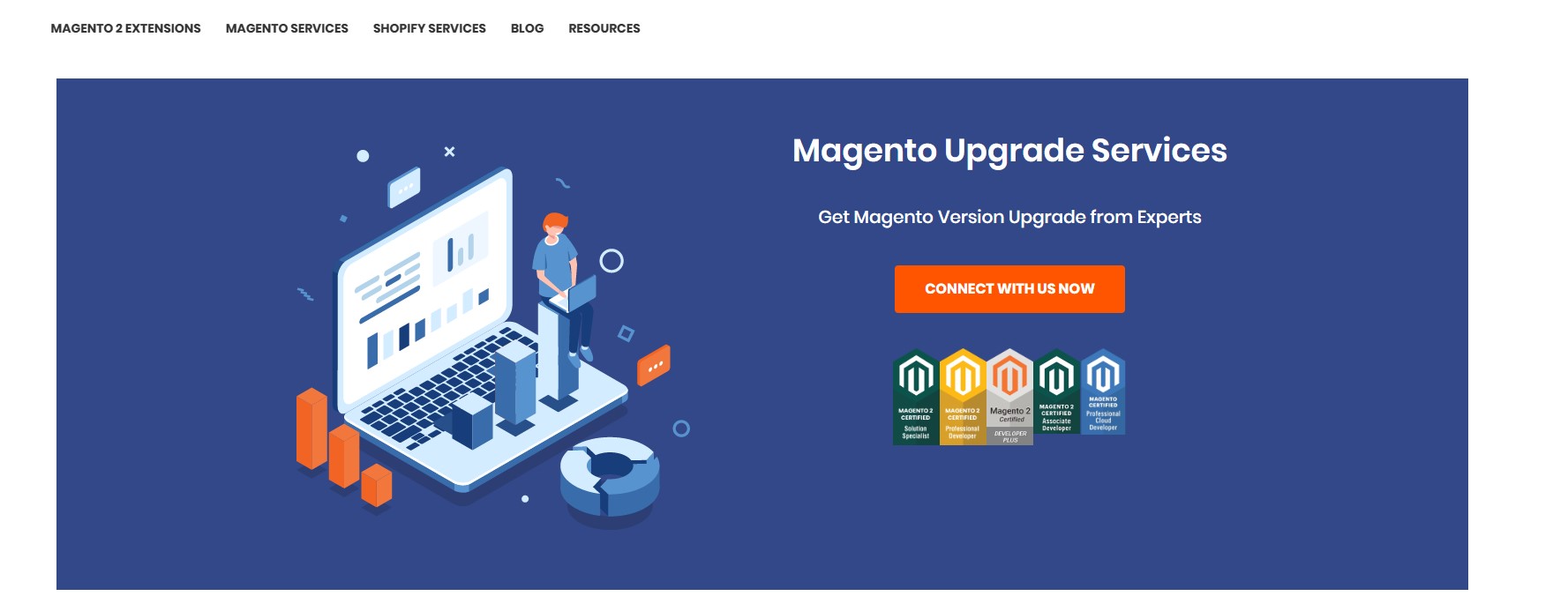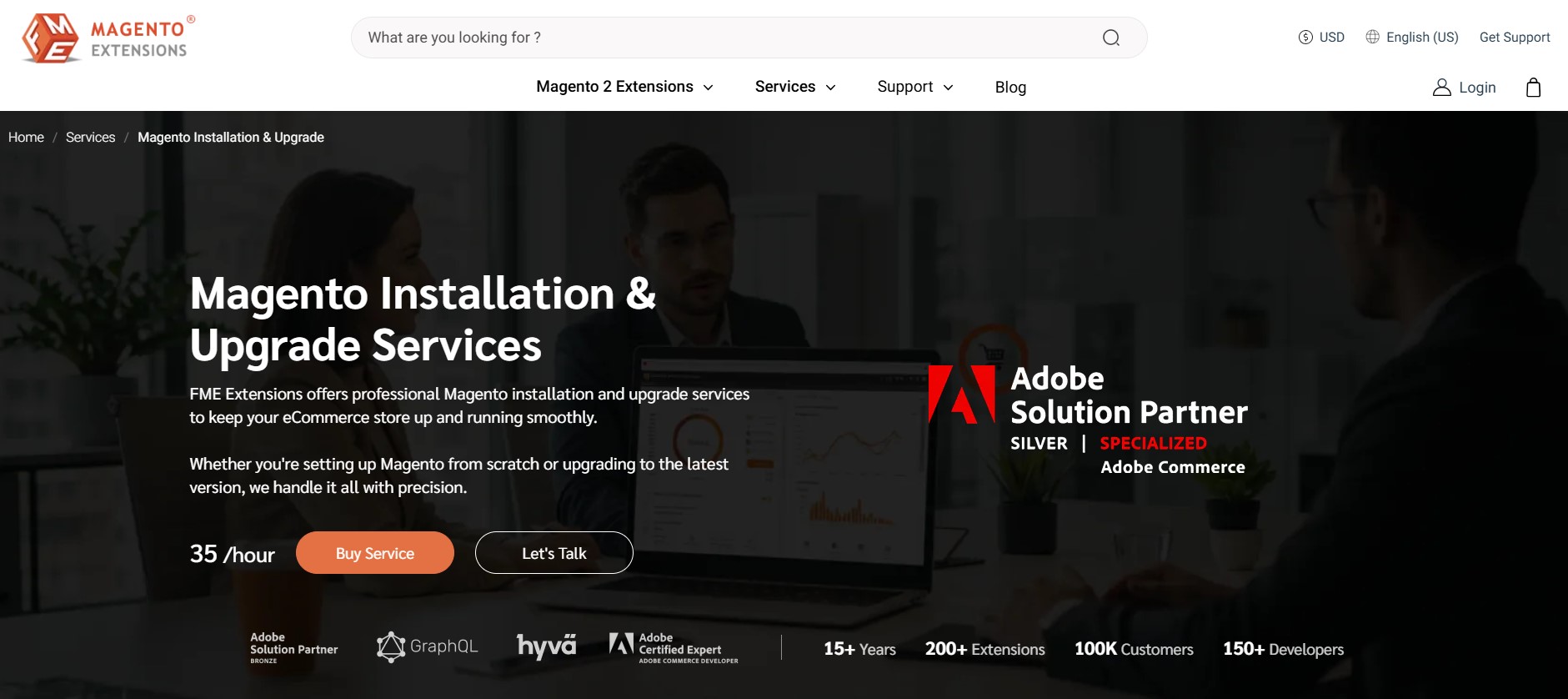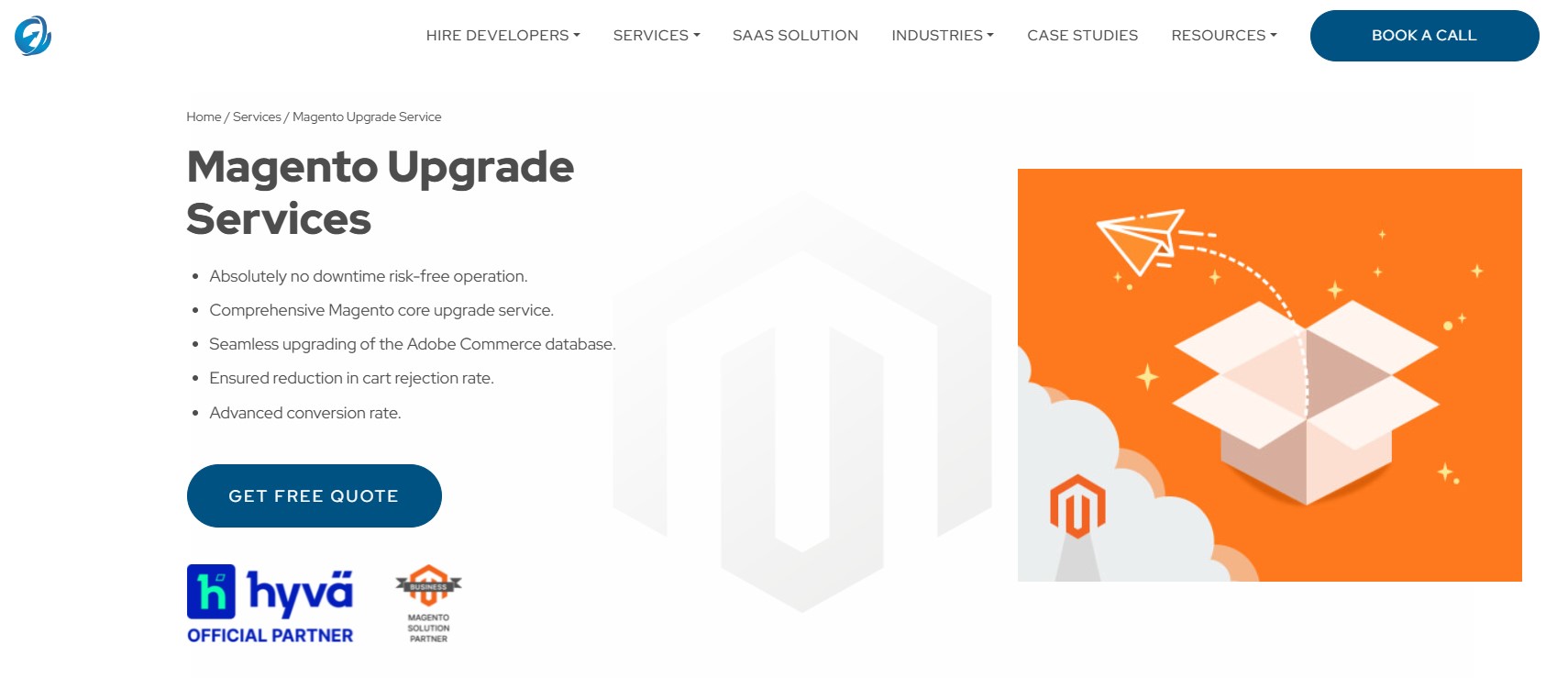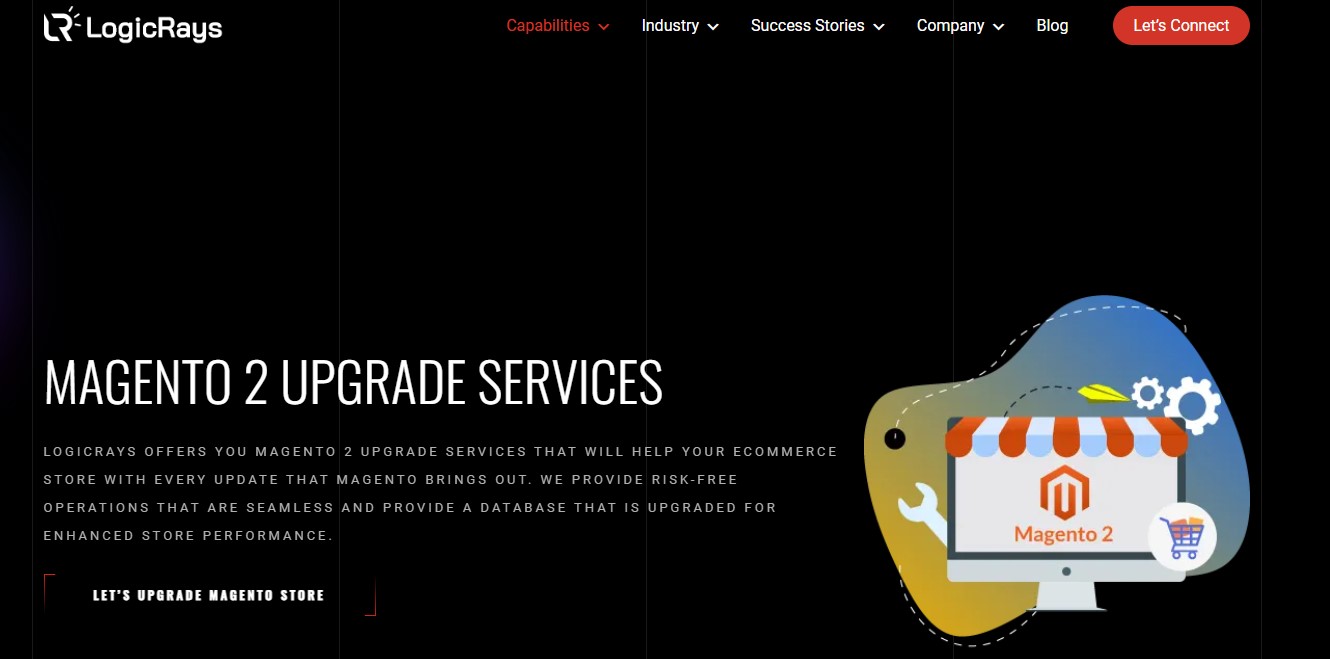Hyvä Theme is Now Open Source: What This Means for Magento Community - Mageplaza
Hyvä is now Open Source and free. Discover what changed, what remains commercial, how it impacts the Magento ecosystem, and how to maximize its full potential.
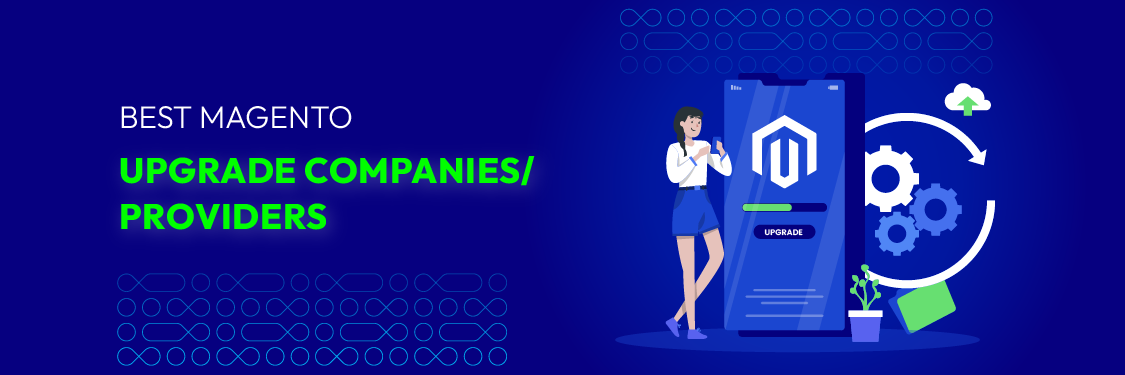
Thinking about upgrading your Magento store, but not sure which partner to trust?
Choosing one of the best Magento upgrade companies can make the difference between a smooth, secure update and weeks of buggy downtime – and that’s why this guide exists.
Upgrading isn’t just about installing a new version. It’s about keeping payments safe, making your site faster, and making sure your themes, extensions, and integrations keep working.
In the sections ahead, you’ll find practical, merchant-friendly comparisons of trusted providers, what each one does best, and the simple checklist you should use before you hit the “Contact us” button.
Looking for
Upgrade Services?
Upgrade your Magento 2 store to the latest version for new features and security - with the help of our dedicated experts.
Upgrade nowRead post:
Magento 1 vs Magento 2 Comparisons
Below is a quick snapshot of leading Magento 2 store upgrade solutions for you to scan. Each provider brings different strengths.
| Company | Strengths / Focus | Best for | Typical upgrade services |
|---|---|---|---|
| Mageplaza | - Deep Magento expertise + large library of compatible extensions - Strong track record with upgrades and fast support - Vendor-friendly for stores using Mageplaza extensions. |
Merchants who want a reliable, full-service partner that understands extensions, performance and business goals. | Full audit, extension compatibility fixes, theme adaptation, custom module refactor, performance tuning, post-upgrade support and SLAs. |
| Wagento | Enterprise-grade engineering, strong in complex custom development and CI/CD. | Mid-to-large merchants with custom platforms or heavy integrations. | Custom module refactor, staging & rollback planning, automated pipelines, thorough QA. |
| Scandiweb | Performance-first and headless/PWA expertise; strong observability & scaling. | High-traffic stores, omnichannel and headless projects. | Headless upgrades, PWA/Hyvä support, scaling, monitoring, performance optimization. |
| Webkul | Large marketplace of connectors and third-party integrations. | Stores relying on many external systems or custom connectors. | API/connector testing, integration fixes, custom connector development. |
| Aheadworks | Strong product & extension development background, good for marketplace features. | Merchants using Aheadworks modules or needing advanced cart/checkout features. | Extension modernization, checkout compatibility, UI fixes. |
| FME Extensions | End-to-end delivery with custom solutions and ongoing support. | Stores wanting a single vendor for upgrade + customization + maintenance. | Theme & extension upgrades, custom fixes, post-upgrade maintenance. |
| Elsner | Long-standing Magento agency with many upgrade case studies | Merchants who want a proven agency with lots of upgrade experience | Extension audit, module refactor, theme fixes, QA & go-live support. |
| LogicRays | Volume of completed upgrades and practical, turn-key upgrade service | SMBs and growing merchants who want predictable, repeatable upgrades | Standardized upgrade workflow, backup & rollback, testing, post-launch support. |
Choosing the right partner determines how smoothly your store upgrades to the Magento 2 latest version.
With this curated list of the best Magento upgrade companies – each entry notes their core strengths – you can quickly match a vendor to your store’s technical needs and business goals.
Mageplaza is more than an upgrade contractor – they’re a full Magento ecosystem partner. If your store uses popular extensions, needs careful extension compatibility work, or wants an upgrade team that also understands marketing and conversion features, Mageplaza is a top choice among the best Magento upgrade companies.
What Mageplaza typically does
Full pre-upgrade audit focused on extensions (identify abandoned or incompatible modules).
Compatibility fixes for Mageplaza and third-party extensions (reducing rework).
Theme adaptation or lightweight rebuilds – they can advise when to keep vs. rebuild.
Performance tuning post-upgrade (cache, PHP, indexing).
QA, staging deployments, and a practical rollback plan.
Post-upgrade support window for hotfixes and monitoring.
Why this helps merchants
If you use Mageplaza extensions or rely on a mix of paid/free modules, their upgrade process avoids “extension surprises” that often cause delays.
You get a smoother handoff from upgrade work into CRO or feature improvements because the team knows common merchant pain points.
Good for: Merchants using multiple extensions, stores that want a single vendor for upgrade + extension fixes, teams who want a clear SLA for post-upgrade support.
VIEW ALL UPGRADE CASE STUDIES BY MAGEPLAZA
Wagento is known for strong engineering practices and is a solid option for mid-to-large merchants who need a structured approach: CI/CD, automated testing, and an enterprise-grade release plan.
What Wagento typically does
Custom module refactor and modernization.
Automated test coverage and CI/CD pipelines for safer rollouts.
Staging, canary releases, and rollback procedures for low-risk deployments.
Good for: Stores with many customizations or those that require formal change control and testing workflows.
If your priority is scalability, high traffic, or a move toward headless or PWA experiences, Scandiweb brings strong performance and architecture expertise.
What Scandiweb typically does
Headless migrations, PWA integrations, and observability setup.
Performance optimization for large catalogs and traffic spikes.
Integration with CDNs, load testing, and monitoring.
Good for: High-traffic retailers, headless ambitions, and complex third-party integrations.
If your store relies on many external integrations – marketplaces, ERPs, or unusual connectors – Webkul’s experience with connectors and cross-system compatibility is a big plus.
What Webkul typically does
Compatibility checks for connectors and APIs.
Custom integration fixes and API testing.
End-to-end flow testing for orders, inventory, and customers.
Good for: Stores with extensive integrations to external systems (ERP, marketplaces, POS).
Aheadworks combines extension development experience with upgrade work – useful if you use Aheadworks modules or need help modernizing complex cart/checkout features.
What Aheadworks typically does
Extension modernization and compatibility fixes for checkout/marketing modules.
UI fixes and small theme tweaks to preserve user experience.
Focused QA on cart and checkout flows.
Good for: Merchants who rely on advanced cart, subscription, or marketplace features.
FME covers a wide range of Magento services and can handle full end-to-end upgrades, including custom feature work and follow-up maintenance.
What FME Extensions typically does
Theme and extension upgrades, custom fixes, post-upgrade maintenance.
End-to-end project coordination and delivery.
Good for: Merchants wanting a single vendor to own the whole upgrade project.
Elsner appears frequently in curated lists and upgrade roundups as a company that has completed many Magento upgrades. If you want a vendor with a visible upgrade track record and case studies to review, Elsner is a solid candidate among the best Magento upgrade companies.
What Elsner typically does
Pre-upgrade audit of extensions, custom modules, and themes.
Module compatibility work and targeted refactors.
Theme/UX fixes so conversion isn’t affected after upgrade.
QA, staging deployment, and go-live support.
Good for: Merchants who want concrete examples of past upgrade projects and prefer an agency that’s done many similar jobs.
LogicRays publicly promotes a high count of Magento upgrades completed, which indicates they run repeatable processes for version updates. That repeatability often translates to predictable timelines and cost estimates – useful when you’re evaluating Magento version update firms.
What LogicRays typically does
Standardized pre-upgrade checks, backups, and rollback plans.
Extension compatibility testing and small refactors.
Pre-launch QA and brief post-launch monitoring/support.
Good for: SMBs and stores that want a straightforward, repeatable upgrade process with clear deliverables.
When selecting a partner to handle your Magento version update, keep these practical tips in mind to avoid costly downtime or compatibility issues:
Ask for a pre-upgrade audit first: A trustworthy provider should analyze your store setup, custom modules, extensions, and hosting environment before giving a quote. This helps prevent hidden issues during migration.
Review past upgrade case studies: Look for examples of successful Magento 2 version updates, especially involving stores with similar complexity or integrations as yours.
Evaluate their testing process: A strong provider includes full QA testing – functionality, performance, and regression – to ensure your store runs smoothly after the upgrade.
Confirm they provide rollback and backup plans: Any professional Magento upgrade company should prepare a contingency plan in case something goes wrong during deployment.
Ensure extension and theme compatibility checks are included: Upgrades can easily break outdated extensions or custom themes. Choose a Magento version update firm that proactively handles these issues.
Compare communication and reporting practices: Regular progress updates, demo environments, and clear documentation show transparency and accountability.
Clarify post-upgrade support policies: Make sure the provider offers bug fixes or maintenance for at least a few weeks after go-live.
1. Why should I hire a Magento upgrade company instead of doing it in-house?
Because professional Magento upgrade providers have the experience and tools to minimize downtime, ensure data integrity, and maintain custom functionality. They also follow security best practices that in-house teams may overlook.
2. How long does a Magento 2 upgrade take?
Small stores: about 1–3 weeks
Medium to complex stores: 4–10 weeks
Enterprise setups: up to 12 weeks or more depending on custom modules and integrations.
3. Do I need a new theme?
Not always – but major upgrades or a move to Hyvä/PWA may require theming work.
4. Is post-upgrade support included?
Most Magento 2 store upgrade solutions include at least 2–4 weeks of post-launch monitoring, bug fixes, and performance optimization.
